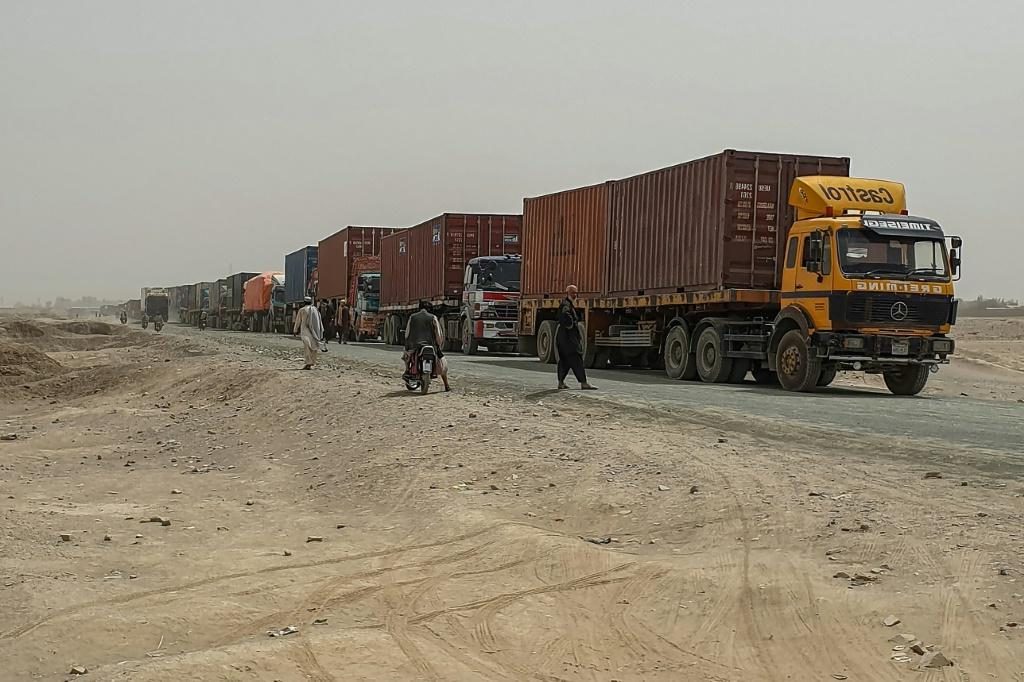Double tax and bandits on the Pakistan-Afghan trade route
The Taliban's capture of a key Afghan-Pakistan border post has sent trucking costs soaring, with insurgents and government officials separately taxing traders, and bandits demanding bribes to allow safe passage of goods.
Thousands of vehicles cross daily from Chaman in southwestern Pakistan to Spin Boldak on the other side, carrying goods destined for Kandahar, Afghanistan's second-biggest city.
On the way back they usually ferry agricultural produce bound for Pakistan's markets or ports.
The bilateral trade worth hundreds of millions of dollars a year if not more ground to a halt earlier this month after the Taliban seized the dusty border town, but resumed this week with the insurgents seemingly firmly in charge.
They have captured a vast swath of the country since early May after launching a series of offensives to capitalize on the final stages of the withdrawal of foreign troops.
While they have not yet taken any provincial capitals, they have captured a string of key border posts -- with Iran, Tajikistan, Turkmenistan and Pakistan -- which provide vital revenue from customs duties on goods arriving in the landlocked country.
"We loaded grapes in Kandahar and on the way we have been extorted at least three times," trucker Hidayatullah Khan told AFP at Chaman.
"Sometimes they charge 3,000 rupees ($20), somewhere else 2,000 rupees, and in some other place 1,000 rupees," he said.
That was on top of the taxes he had to pay Taliban officials in Spin Boldak and Afghan government customs officials who have opened shop in Kandahar.
Imran Kakar, vice president of the Pak-Afghan Joint Chamber of Commerce, gave one example of a truck carrying fabric from Karachi destined for Kandahar.
The Taliban charged the driver 150,000 rupees (about $1,000) as duty in Spin Boldak, but when the vehicle reached Kandahar government officials were also waiting.
"We had to pay even higher customs duties as they don't acknowledge the payments made to Taliban," said Kakar.
The scenes were reminiscent of Afghanistan during its brutal civil war in the 1990s, when a patchwork of militias held stretches of key trade routes and extorted truckers and residents using the roads at will.
Source: France24
BM
31 Jul 2021,18:21














 Live Tv
Live Tv
